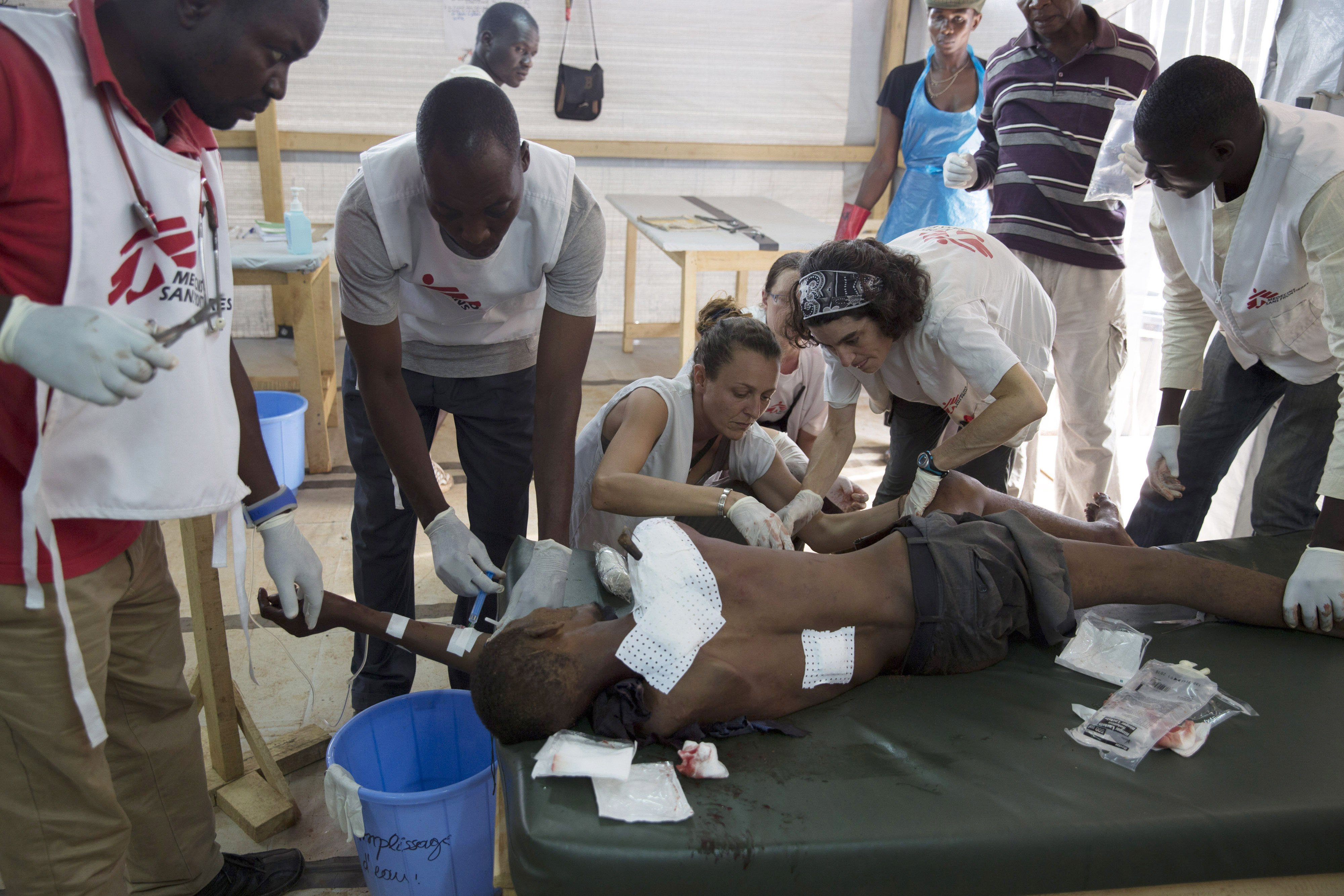A year ago few South Africans would have been able to point out the CAR on a map. But then last March, 13 South African paratroopers were killed near Bangui in the wake of a coup d’état which ousted President Francois Bozize and ushered in a year of chaos and desperation.
Since then nearly 1 million of the country’s 4.6million citizens have been forced to flee their homes and reports of gruesome targeted reprisal killings have become commonplace in ongoing sectarian violence.
Although the conflict is complex and all communities are affected by the violence, the minority Muslim community is increasingly targeted. The different armed groups, the ex-Seleka and the Anti-Balaka, and scores of bandits prey on unprotected civilians who live in constant fear for their lives as they have to fend for themselves in a climate of terror.
The effect of the violence on the entire civilian population has reached shocking levels.
Doctors Without Borders (MSF), the independent medical humanitarian organisation that I’m part of, is working in 12 locations around the country, bringing medical care to tens of thousands of people caught up in the fighting.
My colleagues who still work in CAR despite the very difficult conditions report that the violence seems indiscriminate. Fear grips thousands of displaced people and has led some to flee the country.
More concerning is the situation of those that are trapped in enclaves in Bangui or in towns and villages in the countryside where it is becoming increasing difficult for them to reach help.
The brutal unravelling of the society can be read on the bodies of our patients, both Muslim and Christian, who continue to suffer gunshot wounds and deep cuts from machetes.
In Bangui, fighting and looting continues unabated.
In January we treated more than 1,650 wounded patients from both Muslim and Christian communities.
At the Community Hospital, 584 patients were treated– one third of whom required emergency surgery.
At the Castor Health Centre MSF admitted 91 patients with machete or bullet wounds in the last week. At the M’Poko Airport camp, where approximately 100,000 people are taking refuge in squalid conditions, teams provided medical care to 265 wounded in January, including 100 people in the final week.
Today 410,000 people – nearly half of the capital city’s population – are displaced and humanitarian aid remains woefully inadequate in the poorly assisted camps where they seek refuge. People have access to just 3 litres of water per person per day, and only one latrine is available for 157 people.
So far, only 3,400 families have received shelter. The needs are massive: we are providing well over 12,000 medical consultations every week to people in the M’Poko Airport camp, at two monasteries and the Muslim district, PK5.
Outside Bangui entire Muslim communities are being forced to leave – in some cases under the protection of AU peacekeeping forces.
The latest episode we are aware of came on January 30- 8,000 displaced Muslims living in the Ecole Liberte camp in Bossangoa, 300km north of Bangui, loaded their families and possessions onto a fleet of hired trucks and fled the country in terror.
While working in CAR just a few weeks ago I met many of these families in Ecole Liberte. The people sheltering there feared for their lives and felt fleeing was their only option.
Muslims in the north-western towns of Bouca, Bossangoa, Carnot, Berberati and Baoro have also fled because of the violence.
In Bozoum, a Muslim community of 2,500 people deserted the village on Wednesday.
But in the town of Bouar more than 8,000 Muslims are trapped. Armed groups are preventing their departure and access to healthcare is almost impossible.
Some people thought the bolstering of international armed forces in CAR and President Djotodia, resignation in favor of Catherine Samba Panza augured well.
But the reality is that despite the UN deploying seasoned staff to the country to scale up assistance, and pledges of aid by the EU and UN the overall response is still too slow and woefully insufficient in the face of the enormous needs that exist today.
The fear that I saw in people’s faces and heard in their stories is well grounded. From what we see the violence is escalating and the abuse suffered by civilians has reached an unprecedented level despite French and AU forces on the ground.
Even as they flee, the convoys of civilians are being preyed on.
A few weeks ago, outside Bouar, a convoy of trucks evacuating Muslim families to safety was stopped by an angry mob and 22 people were forced off and killed.
Elsewhere, the retreating Seleka forces that supported the previous president continued brutal attacks on Christians crowded into squalid camps throughout the north-west of the country.This is not the first time that MSF has raised the alarm.
Since March last year, we’ve been calling for an urgent increase in aid and funding on the part of the international community and experienced humanitarian personnel. In December we took UN agencies to task over a lack of sufficient response and they have since increased their presence.
But it is time for them to show that they are capable of meeting the needs.
Stephen Cornish is a general director at Doctors Without Borders (MSF) and a former fieldworker. He recently spent time in MSF projects CAR, where MSF teams run seven regular projects and seven emergency projects. MSF has been working in CAR since 1997 and has more than 240 international staff and 2,000 local staff working in the country.
